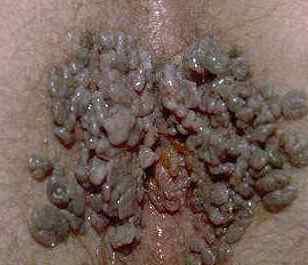
What are the causes of genital warts? Genital warts are caused by the human papillomavirus, often referred to as HPV. There are more than 100 strains of HPV, but not all of them cause genital warts. Some strains cause warts on other parts of the body and some don’t cause warts at all.
Genital warts are usually spread through sexual contact. In fact, HPV is one of the most common sexually transmitted infections. There is no cure for HPV and you can spread the virus even if you have no visible warts, although it’s more likely to be spread when warts are present.
Here Are Some More Genital Warts Facts You Should Know:
- There are now vaccines that help protect against some strains of HPV.
- You can be infected with HPV for six months or more before warts appear.
- Genital warts often go away on their own without any treatment, but that may take a long time.
- It’s possible to get genital warts in your mouth as well as on your genitals, usually spread through oral sex.
- If you give birth when you have genital warts, your baby can get them. Your doctor might recommend a C-section to prevent that from happening.
Who is at Increased Risk For Genital Warts?

Anyone can get genital warts, and the following things are not causes of genital warts, but you are at increased risk if:
- You have unprotected sex.
- You have multiple sex partners.
- You have, or have had in the past, other sexually transmitted infections.
- You have cuts or sores in your genital area.
- You have a weakened immune system (like if you have HIV or AIDS).
- You smoke.
How Can You Prevent Genital Warts?
Now that you understand the causes of genital warts, you can take steps to prevent them.
- Practice sexual abstinence or, if you choose to have sex, practice safer sex. Use condoms for vaginal and anal intercourse and for oral sex with a man. Use dental dams for oral sex with a woman. Practicing safer sex doesn’t guarantee you won’t get genital warts but it does significantly decrease your risk.
- Talk to potential partners about their sexual history before engaging in sexual activity.
- See your doctor for any unexplained itching, discomfort, discharge, bleeding, lumps or bumps, or other problems in your genital area.
- Follow your doctor’s recommendations for treatment for any sexually transmitted infections.
- Don’t smoke.
- Talk to your doctor for more information about genital warts. Arm yourself with genital warts facts so you can protect yourself and your sexual partners.
- Get treatment for genital warts if you have them to decrease the likelihood of spreading them to your partners.
Treatment For Genital Warts
There are no cures for the viral causes of genital warts. However, there are treatments that can remove the warts so they don’t cause discomfort or bleeding, so that they are less likely to be spread to sexual partners, and so that mothers don’t transmit the warts to their infants during childbirth.
Many people see their doctors for treatment for genital warts. There are some over-the-counter remedies available for genital warts, although many over-the-counter remedies aren’t safe for use on the genitals, so read the label carefully before using anything you buy at the store or online. Check with your doctor if you have questions.
One over-the-counter remedy that is safe and effective for genital warts is Terrasil Wart Removal Ointment. We like it because not only is it available without a prescription, it’s made from all-natural ingredients like essential oils and oxygenated minerals that remove warts naturally while also soothing irritated skin. To learn more about our favorite over-the-counter remedy for genital warts, follow this link to the Terrasil Website.
